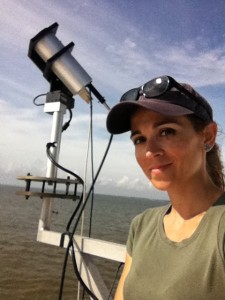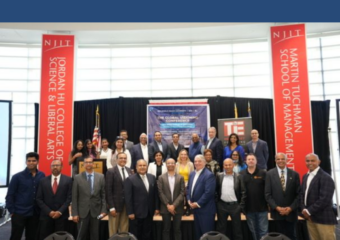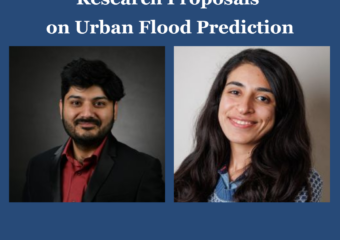Maria Tzortziou joins CREST
 Maria Tzortziou joined the CCNY Earth and Atmospheric Science (EAS) Department and the CREST Center in the fall 2014. Maria brings to the CCNY, EAS and NOAA-CREST community, great subject knowledge and expertise in the fields of Biogeochemical and carbon cycling of the wetlands.
Maria Tzortziou joined the CCNY Earth and Atmospheric Science (EAS) Department and the CREST Center in the fall 2014. Maria brings to the CCNY, EAS and NOAA-CREST community, great subject knowledge and expertise in the fields of Biogeochemical and carbon cycling of the wetlands.
Maria leads the Integrated Research Development of NOAA-CREST center. She also leads multidisciplinary research and teaches students on land-ocean-atmosphere interactions, air quality, and coastal biogeochemistry. Through her leadership and vision, we hope to bring new dimensions to existing interdisciplinary NOAA CREST sciences especially in the areas of marine ecosystems and societal applications. Maria is currently investigating the impacts of various anthropogenic factors and atmospheric pollutants on coastal environment. She is actively collaborating with Professor Kyle McDonald, CUNY CREST Associate Director for science and CCNY EAS professor, on one of her NASA projects entitled “Carbon Cycling in Wetlands.” Dr. Tzortziou also works with Dr. Alex Gilerson from NOAA CREST and Professor in the Engineering Department on developing new satellite retrievals of ocean biogeochemical variables, and with NOAA CREST’s Professor Fred Moshary on measurements of air-quality using new and advanced ground-based remote sensing instruments. Her research also involves collaborations with NOAA scientists such as Mike Brown (Coastal Ecosystems), Cara Wilson (NOAA Fisheries), GuangMing Zheng (Satellite Oceanography) and Paul DiGiacomo (Satellite Oceanography & Climatology). Coastal ecosystems lying at the interface of marine and terrestrial environments are some of our most valuable (economically and ecologically) resources. At the same time, however, these systems are exposed to anthropogenic pressures, such as coastal urbanization, air pollution, and eutrophication. They are also particularly vulnerable to the impacts of global environmental change, including sea level rise and increasing frequency and severity of weather extremes. Dr. Tzortziou is extremely interested in the biogeochemical balances and exchanges that affect coastal ecosystems, how changes of carbon and nitrogen in the atmosphere can affect processes in coastal wetlands, how export of nutrients, carbon and pollutants from terrestrial ecosystems affect estuarine and coastal ocean biology, ecology and biogeochemistry.
Part of her work is devoted to the development of algorithms that capture the color of the ocean and use it to retrieve information on coastal water composition, biological and biogeochemical processes. Dr. Tzortziou participates in NASA’s preparation efforts for three future satellite missions (PACE, ACE and GEO-CAPE) that will provide new information for understanding the living ocean and will expand our capabilities to investigate, monitor, and forecast ecological and biogeochemical processes in coastal environments. Dr Tzortziou also actively engages CREST students in her research with hands-on participation at every level from project startup to fieldwork and publication. She has already developed an impressive team of Marine Science students at the City College of NY. Her current students include two NOAA-CREST scholars, Laura Logozzo who will begin in fall as a NOAA-CREST Masters student) and NOAA-CREST undergraduate student Myrna Hanna. Laura is interning this summer at the Smithsonian Environmental Research Center and studies carbon cycling in wetland and estuarine ecosystems, while Myrna focuses on using remote sensing applications and algorithms to study ocean color for assessment of water quality in coastal waters. Brian Lamb will join Tzortziou’s Lab this fall as a PhD student, working with Dr. Tzortziou and Dr. McDonald on remote sensing of wetlands and studying wetland vegetation communities and inundation regimes in and around the Chesapeake Bay. Two more students, Alana Menendez from Bowdoin College who will be pursuing a MSc degree at EAS and an undergraduate student from Hunter will join Tzortziou’s lab this fall. Dr Tzortziou also works with Dr Fang Cao, who is now a postdoctoral associate in Dr Tzortziou’s lab. Fang joined the lab and NOAA CREST in 2015 after completing her PhD in Marine Sciences at the University of Georgia and her work includes developing ocean color algorithms to retrieve bio-optical parameters, evaluating UV photochemistry of dissolved organic matter (DOM) in optically complex waters.



